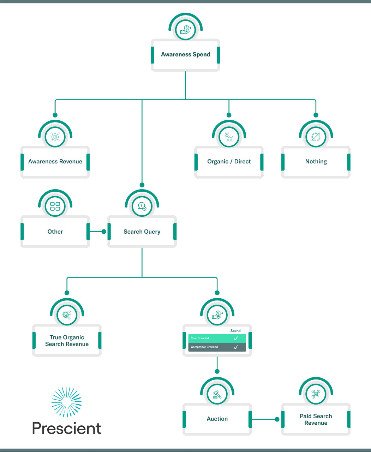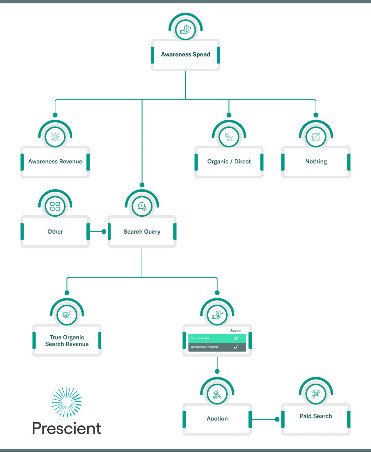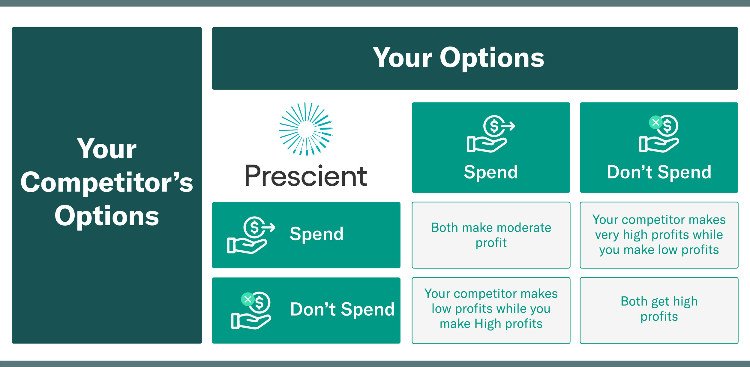It’s a common misconception that spending on branded keywords is like handing out flyers to people who drive across town just to get to your store. They thought of you, they got in their car, they plugged you into Google Maps. Clearly they want to buy from you, right? So why bother?
This may be true for someone who drove across town, but the internet is a different place. And not spending on your branded keywords can be like letting your competitors hand out flyers outside your business–and in this case, the customer can teleport to their store.
Branded search is up for debate again after Speedwell Research tweeted out comments from Restoration Hardware CEO Gary Friedman that he made during a 2017 conference. Friedman discovered that 22 of 3,200 keywords from their paid search campaigns were pulling in 98% of the traffic. As you may have already guessed, those were the branded keywords.
He told the team to end the campaigns, despite concerns that Pottery Barn “might squat on top” of them. Friedman claimed a customer won’t buy from another adjacent brand if they want to buy from the brand they searched for.
Judging by the comments supporting the decision, Twitter users agree with his logic. There’s only one problem–customers might actually buy from your competitor because it’s close by, and you just gave them a prime position by not bidding against them for your branded keywords.
Understanding Awareness Campaigns
Spending on awareness campaigns drives revenue through two methods:
- Observable (or partially observable) revenue through the marketing channels pixel or UTM parameters, and
- Unobservable revenue through second-order/halo effects.
Marketers know that when spending on awareness campaigns, part of that revenue is attributed to search campaigns, part of that revenue is attributed to organic or direct, and part of that revenue is lost.
We’ve provided a simplified example below. Note that the graph has no concept of time since the timeline is affected by the purchase cycle (brands in different industries could have extremely different timelines).

A question that comes up frequently is the value of branded keyword search in a marketing mix. There are attribution platforms that claim you can perform a geo-based A/B test to answer this question or use incrementality testing. Sadly, neither of these methods will capture the full story, causing inaccurate measurement of your revenue.
These methods both ultimately fail because they assume each part of your marketing mix acts independently without affecting the others—which just isn’t true. You can’t figure out the impact of branded keywords on awareness if you don’t also control how your Facebook campaigns play into branded search, for example.
Branded Keyword Buying As Explained by Game Theory
Yes, a customer that typed your brand name into a search engine might buy from your competitor if they’re squatting there–and game theory explains this phenomenon.
Some marketers or stakeholders question the value of branded keyword search, stating that it doesn’t drive significant value. By framing this problem as a prisoner’s dilemma, we can show how and why spending on branded traffic isn’t just valuable but necessary.
First, an essential chart to contextualize branded keywords in a marketing mix:

If we turn off branded search, we’re deleting a connection between awareness and search. This means that any form of additional revenue which would have been caught by search isn’t going to your brand.
So, what happens? The awareness campaign is still running and is still generating traffic to the search query. However, your campaign spend is not there to capture that search for your brand name. Translation: People continue to Google your brand name, but you have no ad there to greet them.
Who is spending on your brand name? Your competitors. This shows how your competitor will capture the second order benefit of your awareness spending. We’ve bolded the outcome of these actions in the chart below.

So, if Restoration Hardware stops spending on branded search, we’d recommend that their competitors up their spend on RH’s keywords.
Game Theory Plays Out In All Advertising
This phenomenon isn’t unique to branded keywords–and, if he wanted to, Friedman could have easily looked to other brands’ past mistakes to inform his decision.
But at least he isn’t alone. Coca-Cola, notoriously in a standoff with Pepsi for market share, decided to pause their advertising efforts during the Covid lockdown. Coca-Cola went dark and PepsiCo maintained their ad spend. The result: Coke fell 11% in net revenue in 2020, while PepsiCo grew by 5% without putting additional budget toward their campaigns.
Long story short: You can’t win if you don’t play. Keep the branded keyword campaigns.

